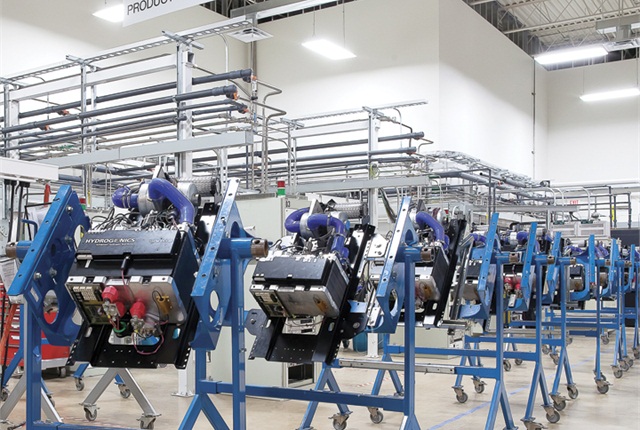Will Fuel Cells Offer A Cleaner Future For Heavy Duty Trucks?
Advancing technology and a steadily increasing focus on environmental issues are resulting in new developments that will help to make the earth a cleaner place. Recent news in the heavy-duty truck industry explores a potential solution that can reduce greenhouse gases--since heavy-duty trucks are responsible for nearly 20 percent of greenhouse gases created by transportation, this certainly is exciting news.
Hydrogen technology is being tested by several manufacturers to determine if it is a viable fuel option for heavy-duty trucks. Nikola Motor Company, a Salt Lake City-based start-up, has created a new big rig that is quite different from the rest. The prototype stores hydrogen where a heavy-duty truck would normally store diesel fuel, and a peek under the hood reveals a fuel cell stack rather than the typical internal combustion engine.
Although the hydrogen fuel cell dates back to the 1850s, it was over 100 years later before the technology saw practical application--according to the Smithsonian National Air and Space Museum, hydrogen fuel cells were used as a primary source of electricity in the Apollo.
A heavy-duty vehicle with a fuel cell relies on a "stack" system to combine both hydrogen and oxygen. The current generated by this system powers a motor much like an electric vehicle. The difference between a fuel cell vehicle (FCV) and an electric vehicle is the exhaust system--an electric vehicle has no exhaust while a FCV has an exhaust pipe that only expels pure water vapor.
The biggest challenge facing the development of fuel cell vehicles is the lack of refueling networks in the United States. A nationwide network of hydrogen pumps would be necessary for hydrogen-powered semis. While this might sound like the far-fetched dream of an overly optimistic start-up, proponents are encouraged by the fact that vehicle industry giants like Toyota are also investigating the use of hydrogen. Please feel free to contact us to learn about other advancing technologies and their impact on the trucking industry.


